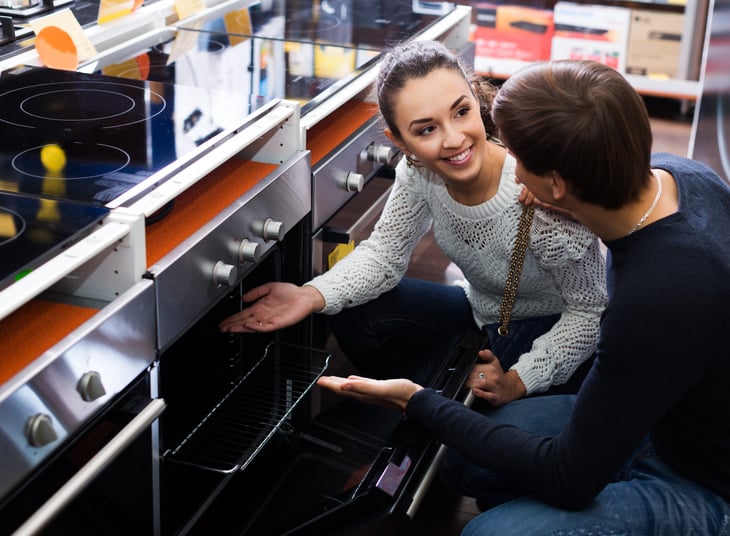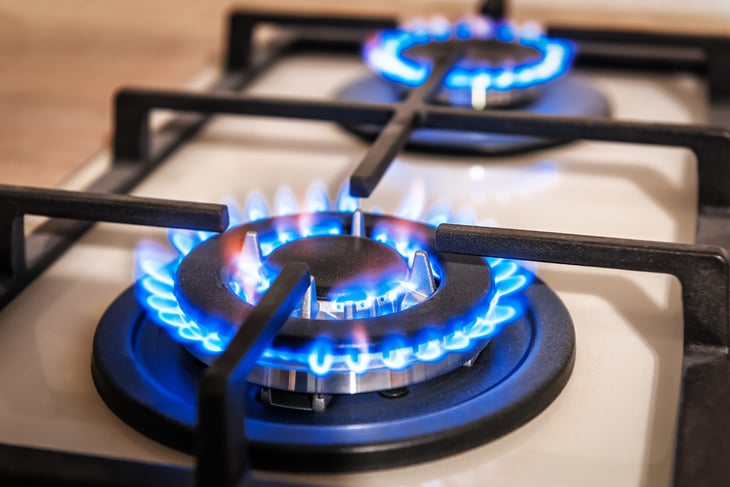
The recently passed federal Inflation Reduction Act has several high-profile tax credits aimed at promoting more environmentally friendly behaviors. But tucked into the law are some green rebates for your kitchen that largely have escaped media attention.
The new law carves out $4.5 billion for a “high-efficiency electric home rebate program.” The program will provide money back to low- and moderate-income consumers who purchase certain types of electric appliances.
Read on to find out more about how the high-efficiency electric home rebate program will work.
Why gas appliances are bad for you

When you cook with natural gas, it creates a level of indoor air pollution that many experts view as unsafe.
Studies have shown that these pollutants can lead to asthma, mostly in children, according to PIRG, a federation of state-based public interest research groups. One report even suggests that the impact of these pollutants on children might be similar to the danger of secondhand smoke.
Gas-powered appliances also may endanger the respiratory health and even the cardiovascular health of adults, as we reported in “Is This Type of Appliance Endangering Your Health?”
Such health concerns haven’t quelled the misgivings of many people — especially chefs and restaurant owners — who contend that using natural gas appliances is essential to preparing some dishes properly. But in an age of climate change, it seems that the days of gas appliances are numbered.
Why gas appliances are bad for the planet

PIRG notes that the gas used in stoves is typically methane — a greenhouse gas “with 80 times the climate-warming harm of carbon dioxide,” PIRG says.
By contrast, cooking with appliances that depend on electricity is much safer, PIRG says:
“They avoid the combustion of methane gas (or ‘natural gas’) and significantly reduce the air pollutants that are emitted from cooking. Even better, electric appliances can be powered by 100% renewable energy (which, thanks to the Inflation Reduction Act, we will see a lot more of), further reducing climate emissions.”
How the Inflation Reduction Act helps

The Inflation Reduction Act gives money to the states to offer rebates to consumers who purchase electric appliances, including cooktops, ranges and wall ovens.
The U.S. Department of Energy is in charge of making sure the money gets to individual states, while the states will decide precisely how to use the funds, as long as each state adheres to the guidelines in the law.
Under the new law, the savings for consumers can be large. Shanika Whitehurst, associate director of product sustainability on the research and testing team at Consumer Reports, says that thanks to the rebates, you may be able to buy one of the electric ranges that fared best in CR testing for $200 or less.
As CR reports:
“You could receive, for example, a rebate of up to $840 on a new electric cooking appliance and up to an additional $500 to help cover the costs of converting from natural gas or propane to electric. If you need to upgrade your home’s electrical panel in order to accommodate an electric range (or any other electric appliance upgrade covered by the Inflation Reduction Act, such as certain electric heat pumps or electric-heat-pump clothes dryers), you could get a tax credit of up to $4,000 for that expense as well.”
What it could mean for you

To qualify for the rebates, you need to meet income requirements that your state will largely determine.
The Inflation Reduction Act itself states that eligibility for the rebates should depend on how your household income compares with the median household income of a particular area that your state will dictate, which might include your ZIP code, county or the entire state, according to Consumer Reports.
The website Rewiring America has a calculator that can help you determine your eligibility.





Add a Comment
Our Policy: We welcome relevant and respectful comments in order to foster healthy and informative discussions. All other comments may be removed. Comments with links are automatically held for moderation.